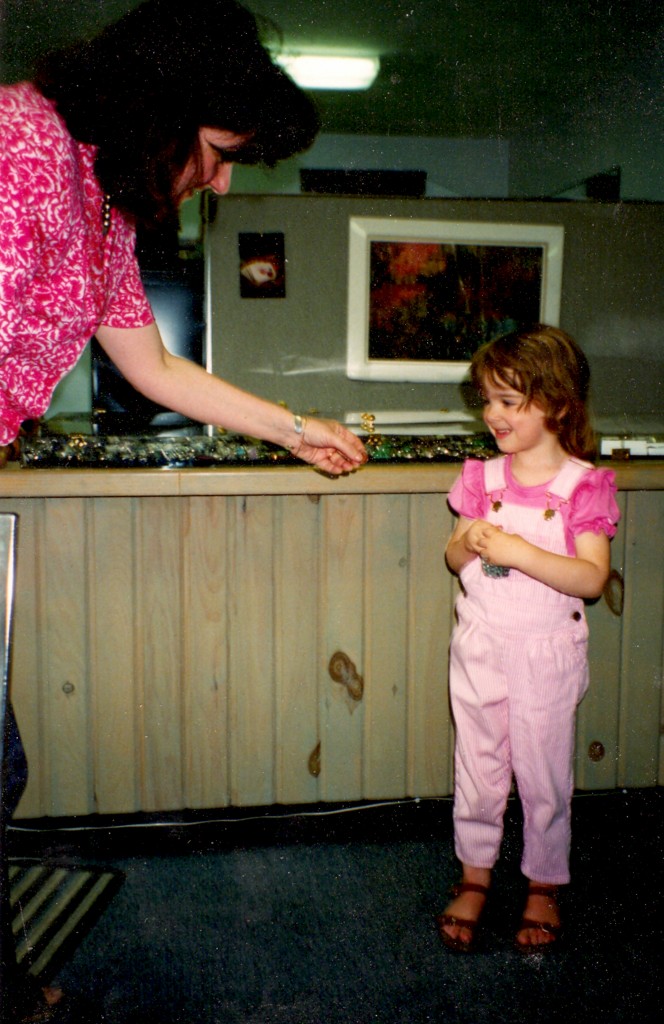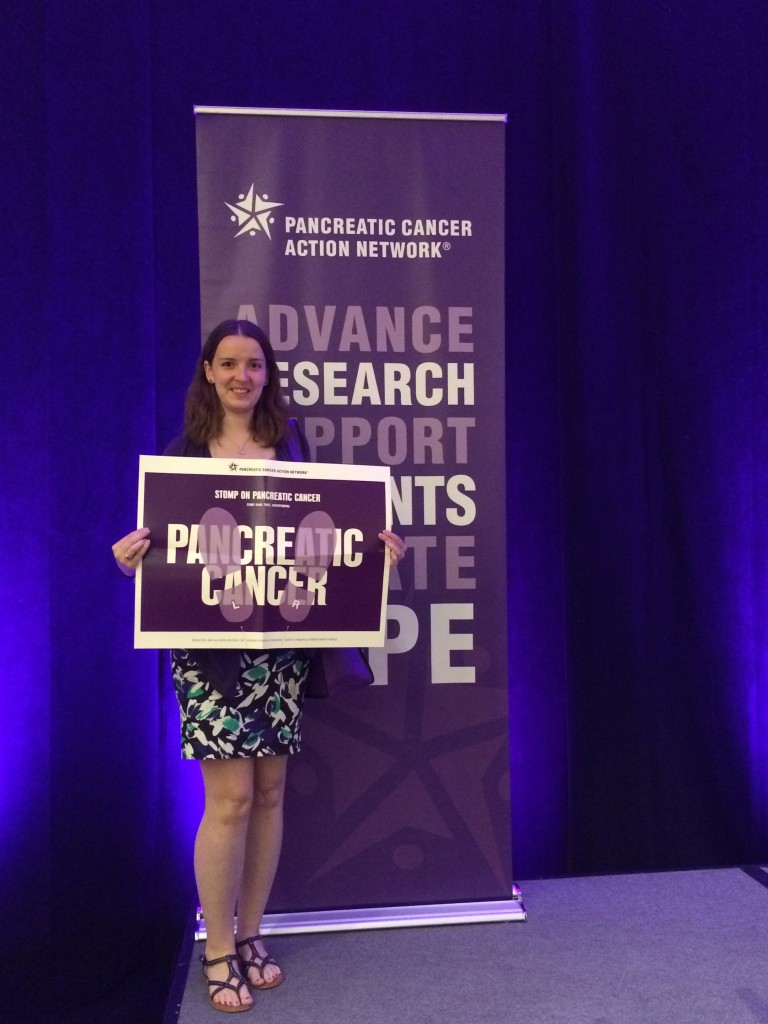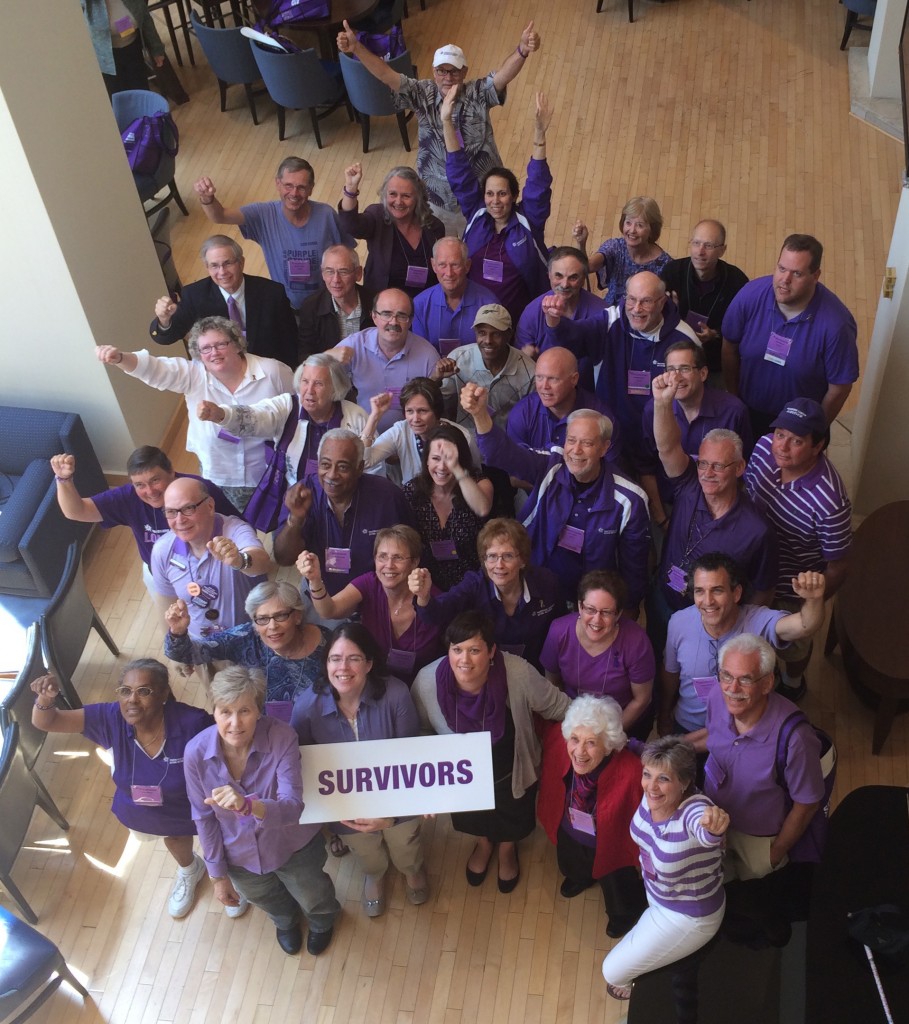As far back as she can remember, Sarah Swanson liked to hang out at her mother’s jewelry store — G. Irwin Co. in Kittery. It’s closed now. Sarah’s mother Ann Pardoe died at the age of 62 on March 3, 2013, 11 months after she was diagnosed with Stage 4 pancreatic cancer.
Eleven months is the average survival rate for someone with advanced cancer of the pancreas. Like Ann, many people find out when they’re first diagnosed that their cancer has already begun to spread. “Unfortunately,” says Dr. Devon Evans, a medical oncologist at New England Cancer Specialists in Scarborough, “the reality of pancreatic cancer is that it seems to spread very early in its disease course and does not seem to have a lot of symptoms early on.”
Sarah says a few months before she was diagnosed, her mother talked about wanting to lose weight and get healthier as she prepared for retirement and some traveling. “We think there may have been something going on but you couldn’t really tell what it was,” she says. “Then she started having cramping feelings in her abdomen.”
Symptoms of pancreatic cancer
Jaundice or yellowing of the skin is often a first symptom. It happens when a tumor blocks bile ducts. “Oftentimes the tumors are very small still,” says Dr. Evans. “Less than an inch. But even at that small size they have a propensity to spread to other parts of the body,
- Jaundice
- Abdominal or back pain
- Sensation of feeling bloated or full when you’ve only eaten a little
- Weight loss
- Fatigue
Risk factors for pancreatic cancer
The exact causes are not well understood, but research has identified certain risk factors:
- Smoking Smokers are two times more likely to develop pancreatic cancer.
- Age Most people are over 60.
- Family history Two to three times the risk if mother, father, sibling or child also had pancreatic cancer.
- Chronic pancreatitis Common when consume large amounts of alcohol for many years.
- Hereditary pancreatitis Recurrent inflammation that begins by age 20.
- Diabetes More likely in people with long-standing diabetes. New-onset over age 50 may be an early symptom.
- Diet Association still unclear. Diet high in red and processed meat may increase risk.
- Obesity Increases risk by 20 percent.
Sarah’s mother had an aunt who died of pancreatic cancer and she was overweight, but other than that, had no other risk factors. When she found out she had cancer, Ann began a course of chemotherapy, but within a few months the tumor started growing again. She reluctantly closed her business and sold everything in the store at 50 percent off. “When she passed away,” says Sarah, “we decided as a family that we were going to give a portion of the proceeds to the Pancreatic Cancer Action Network.”
Representatives from PanCAN, as the Network is often called, reached out to the family to lend support and tell them about the organization’s patient and family liaison services. When someone asked if Sarah would fill a void in Maine and become the state’s PanCAN representative, she didn’t hesitate. “Our mission is to work together to advance research, support patients, and create hope for those affected by pancreatic cancer.”
The need for research
There are two types of pancreatic cancer and they’re very different diseases. “The pancreas has two jobs,” explains Dr. Evans. “One is to secrete digestive enzymes and the second is to secrete hormones. The most common pancreatic cancer comes from exocrine cells, which secrete digestive juices as opposed to neuroendocrine carcinomas [PNET], which come from hormone secreting cells. PNETs tend to be very slow-growing and people can live for years with no treatment.”
The more common pancreatic cancer is called adenocarcinoma. It has a 6 percent five-year survival rate and is expected to surpass breast and colorectal cancer to become the second leading cause of cancer related death in the United States by 2020. Lung cancer tops the list. In addition to vague symptoms and early spreading, pancreatic cancer generally doesn’t respond well to treatment. That said, in the last couple of years there have been some meaningful treatment advances. “The outlook is at least a little bit better than it was,” says Dr. Evans. “We have better chemotherapy combinations and we’re often using combinations of chemotherapy and radiation before surgery to try to kill any cancer cells outside the area of the pancreas. We used to do surgery first. It’s a big operation that requires quite a bit of recovery and the reality was that people didn’t see chemotherapy or radiation until a few months after the surgery. By that time the cancer had often already spread to the liver or elsewhere.”
There are also a number of ongoing clinical trials looking primarily at targeted therapies, including an upcoming trial at New England Cancer Specialists. Right now the only approved drug is Tarceva, which Dr. Evans says only provides a modest benefit.
Increased funding for research is one of the Pancreatic Cancer Action Network’s primary goals. In June, Sarah and nearly 500 more supporters traveled to Washington DC to host the 8th annual Pancreatic Cancer Research Advocacy Day for members of Congress. They urged them to join the newly formed Congressional Caucus on the Deadliest Cancers — convened to raise awareness about the deadliest forms of cancer and advocate for research funding. As of August 6, 24 members had joined, none yet from Maine.
The first seven Advocacy Days were spent fighting for passage of the Recalcitrant Cancer Research Act, which was signed into law on January 2, 2013. The bill called on the National Cancer Institute to develop scientific frameworks for pancreatic, lung and other deadly or recalcitrant cancers — those with a five-year survival rate below 50 percent. As it states on the PanCAN website, having scientific frameworks in place “will help provide the strategic direction needed to make true progress in these deadly cancers.”
PanCAN also advocates and educates on the local level. If you have been affected by pancreatic cancer in any way, you may want to participate in a nationwide event called PurpleLight. Survivors, family and friends from more than 80 communities are hosting PurpleLight events to honor people who have been diagnosed with pancreatic cancer and shine a light on the disease. In honor of her monther, Sarah is organizing a PurpleLight event in Portland on October 26. Stay in touch for details or visit the PanCAN PurpleLight website, where you can also learn more about pancreatic cancer and how you can take action against this deadly disease.




Thank you for this blog, Diane. Sarah is working incredibly hard to bring greater focus to pancreatic cancer.
Dear Diane,
My name is Mike Pardoe, Ann’s husband. I just wanted to thank you for writing that informative article on pancreatic cancer; also I have to tell you what a difference it made for Sarah to have someone listen to her as you did. She was becoming somewhat disenchanted with the lack of response from Mainers! Usually at the monthly meetings it is only the two of us. I tell her it’s early days: these things take time. It was good for her to have you behind her; it has really raised her spirits.
Thank you again,
Mike Pardoe
Nice article, There are no symptoms in the early stages. Later stages are associated with symptoms, but these type of articles creates more awareness on people. Thanks for sharing.